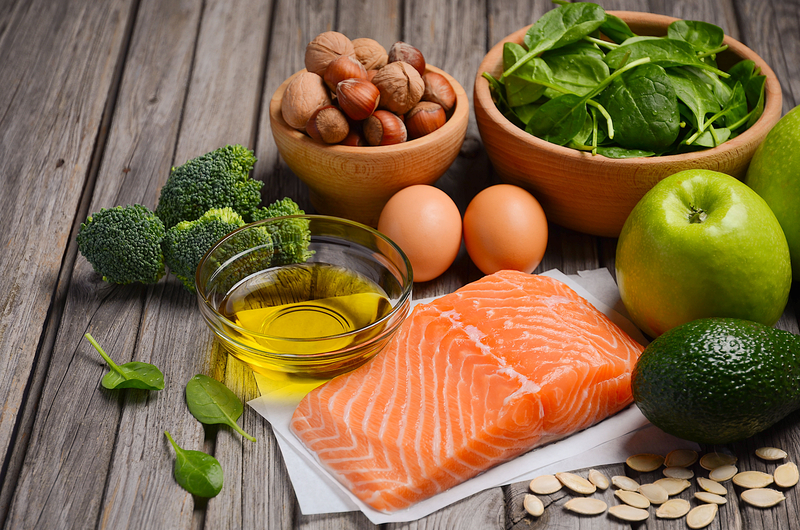Top 17 Foods for Healthy Lungs and Improved Breathing

We know that we breathe throughout the day. As a matter of fact, the average adult takes about 20,000 breaths per day (arguably, the lion’s share taken for granted). Most of the time, we take little notice of how well or even if we’re breathing. After all, it’s automatic, so we don’t have to think about it. Unless, that is, we start experiencing breathing issues, perhaps due to asthma, pollution, an upper respiratory tract infection (such as the common cold, flu, or other virus-induced illness), a pneumonia-like condition, chronic bronchitis, or emphysema. Yet in truth, our lungs need proper care and attention, just like the rest of the body. And yes, there are activities and foods for healthy lungs that can help!
Breathing is vital to our survival. It provides life-giving oxygen to every living cell while removing the waste product carbon dioxide. And without enough oxygen (and the proper exchange of oxygen for carbon dioxide), we become more prone to health problems, including respiratory illness, heart disease, and chronic obstructive pulmonary disease.
Improved breathing doesn’t just affect those with breathing problems or an illness. It also helps folks who want to achieve peak performance during workouts or sports. Improving breathing also promotes endurance and stamina, so you’re able to work out harder yet with less effort.
Activities That Clean Our Lungs
If you want to optimize your levels of oxygen—called oxygen saturation (as you should)—then ordinary, automatic, take-it-for-granted breathing isn’t enough. During most everyday activities, our lungs are at just 50% capacity. Like the rest of our bodies, we need to challenge our lungs with movement and greater activity levels to prevent the build-up of toxins caused by environmental pollutants, dust, etc.
(Oh, and if you want to lose fat, this is especially relevant to you because you actually lose fat through your breath!)
We can help our lungs cleanse by:
- Practicing breathing exercises, especially diaphragmatic breathing (aka belly breathing) and deep breathing throughout the day.
- Improving posture to increase air intake.
- Staying hydrated.
- Laughing a lot, which is an excellent exercise for the abdominal muscles, for lung capacity, and cleansing.
- Singing.
- Staying active and exercising regularly—at least 20 minutes of moderately intense movement, like a brisk walk or bike ride, at least 5 days per week.
- Developing greater muscle strength with interval training and strength training to increase exercise capacity.
- Not smoking or vaping, which should be a no brainer.
- Improving air quality at home.
- Diffusing or applying a quality essential oil like eucalyptus, citrus, or pine.
- Managing stress levels.
- Enjoying a balanced, whole-food diet that provides the top foods for lung health.
*Please note, if you do have a chronic cough, fever, chest pain, or difficulty breathing/shortness of breath, please contact your doctor. The earlier lung problems are diagnosed and treated, the more likely a better outcome is.
17 Foods for Healthy Lungs
A healthy diet, in general, is an investment in long-term health, and that applies as much to the lungs as any other body part. There are, however, some key foods to add to your shopping list to support strong, healthy lungs, including:
- Fatty fish, like wild-caught salmon, arctic char, Atlantic mackerel, and sardines, for their high content of omega-3 fatty acids.
- Other omega-3 fatty acid-rich foods, such as walnuts, flaxseeds, and chia seeds.
- Apples, as they’re rich in flavonoids, vitamin E, and vitamin C, which have been linked to decreased disease risk and improved health, including healthier lungs.
- Olive oil, which has been shown to boost blood vessel response.
- Citrus fruits, including oranges, grapefruits, and lemons, which are rich in vitamins C and B6.
- Vitamin A/beta-carotene-rich foods, like apricots, carrots, pumpkin, sweet potatoes, chicken, turkey, and liver.
- Vitamin C-rich foods, such as berries, bell peppers, chili peppers, oranges, kale, Brussel sprouts, pears, and papayas.
- Vitamin E-rich foods, like nuts, seeds, rainbow trout, and wheat germ oil.
- Antioxidant-rich foods, for example, tomatoes, broccoli, beans, berries, grapes, and pomegranates.
- Foods with anti-inflammatory properties, such as garlic, onions, turmeric, leafy greens, cherries, blueberries, olives, walnuts, beans, and lentils.
- Herbs and spices, like ginger, which has been shown to help decongest lungs; chili peppers and cayenne, which stimulate mucus membranes and improve blood flow to help fight infection; black cumin, which may help support healthy levels of inflammation and open up airways; and turmeric, which helps support healthy levels of inflammation and may help relieve chest tightness. (These spices are often forgotten foods for healthy lungs)
- Chlorophyll-rich foods, for instance, cabbage, broccoli, spinach, spirulina, and collard greens.
- Magnesium-rich foods, including flaxseeds, pumpkin seeds, and sunflower seeds.
- Coffee, which is a very mild bronchodilator.
- Green or matcha tea, which provide a wealth of antioxidants that help calm the body, help the body fight inflammation, and promote healing.
- Hot water or tea, which can help soothe the throat and flush out mucous membranes to protect the lungs from irritation.
- Whole grains, like quinoa and brown rice (avoid simple carbohydrates which can place more stress on the lungs).
Stay healthy, stay strong, take good care, and eat some of these best foods for healthy lungs. Breathing is, obviously, vital for living. And enhanced breathing can improve quality of life, exercise performance, and even state of mind.






